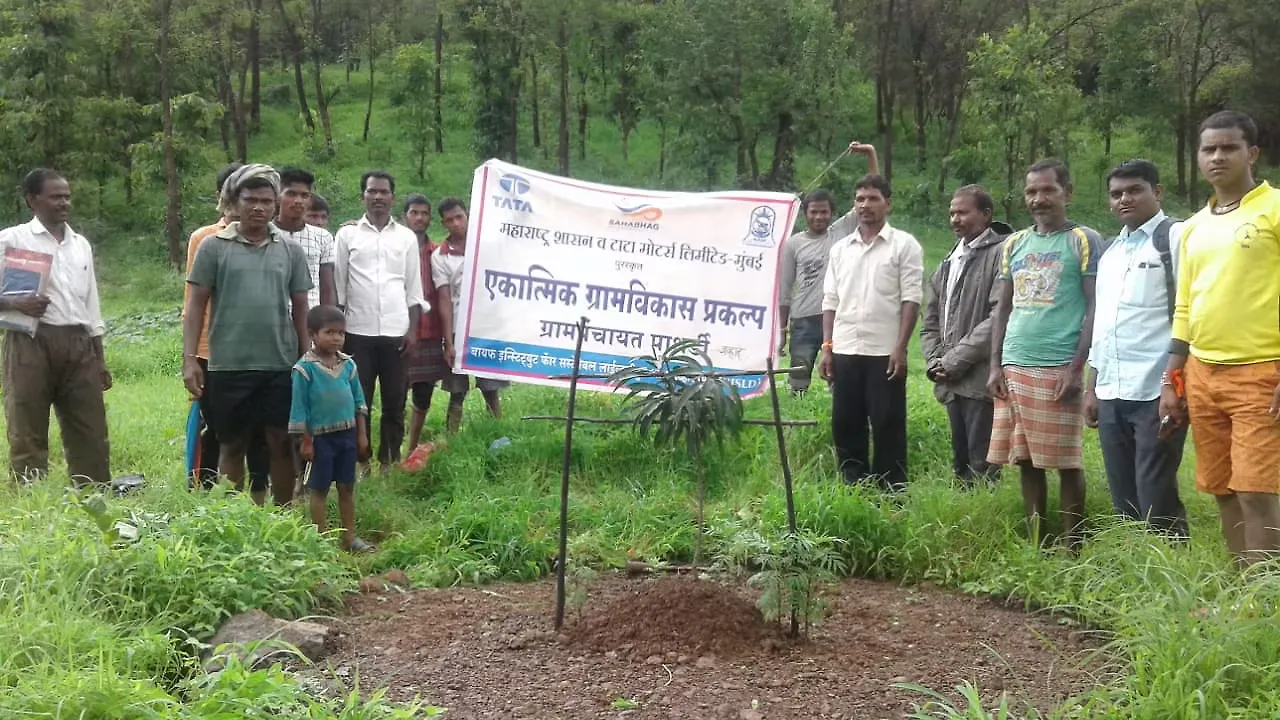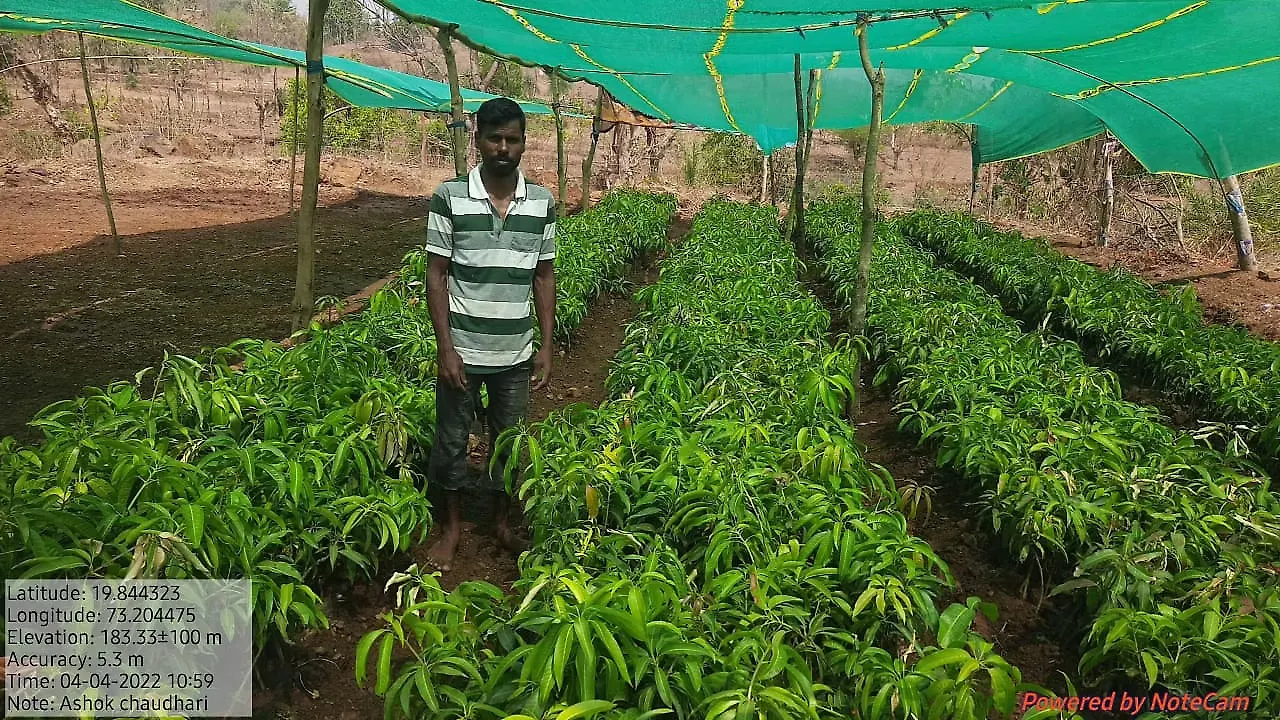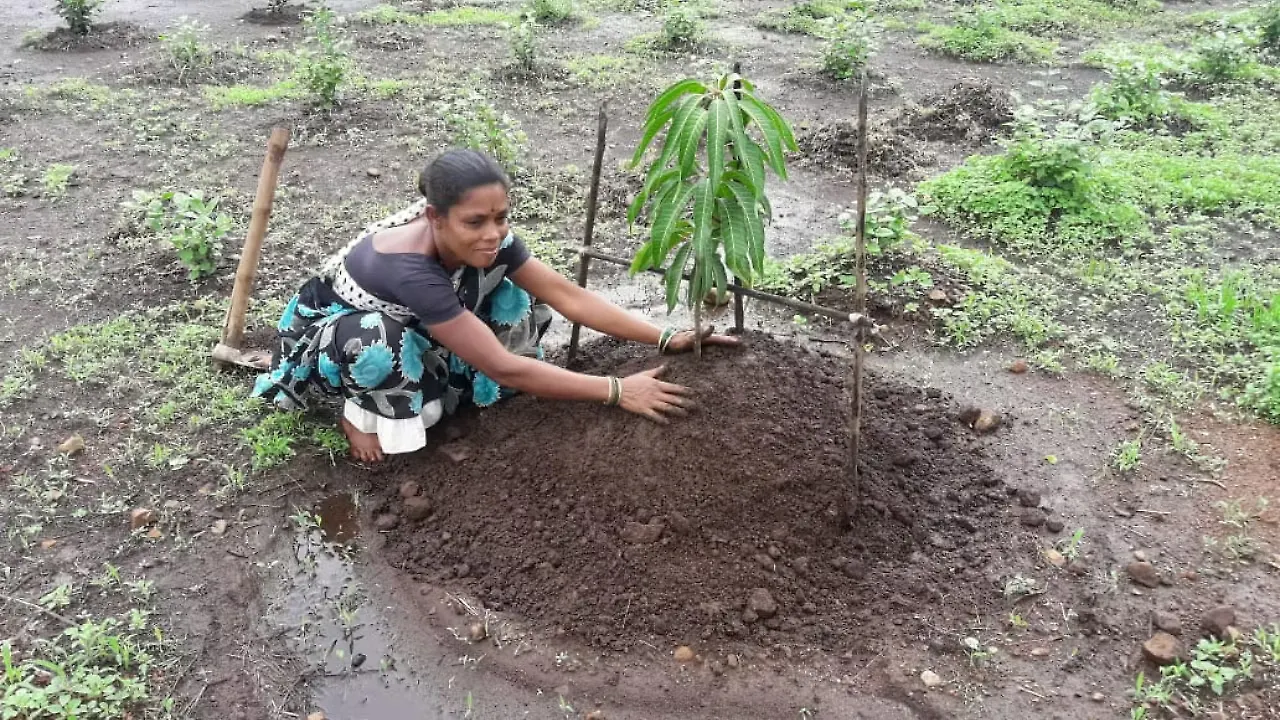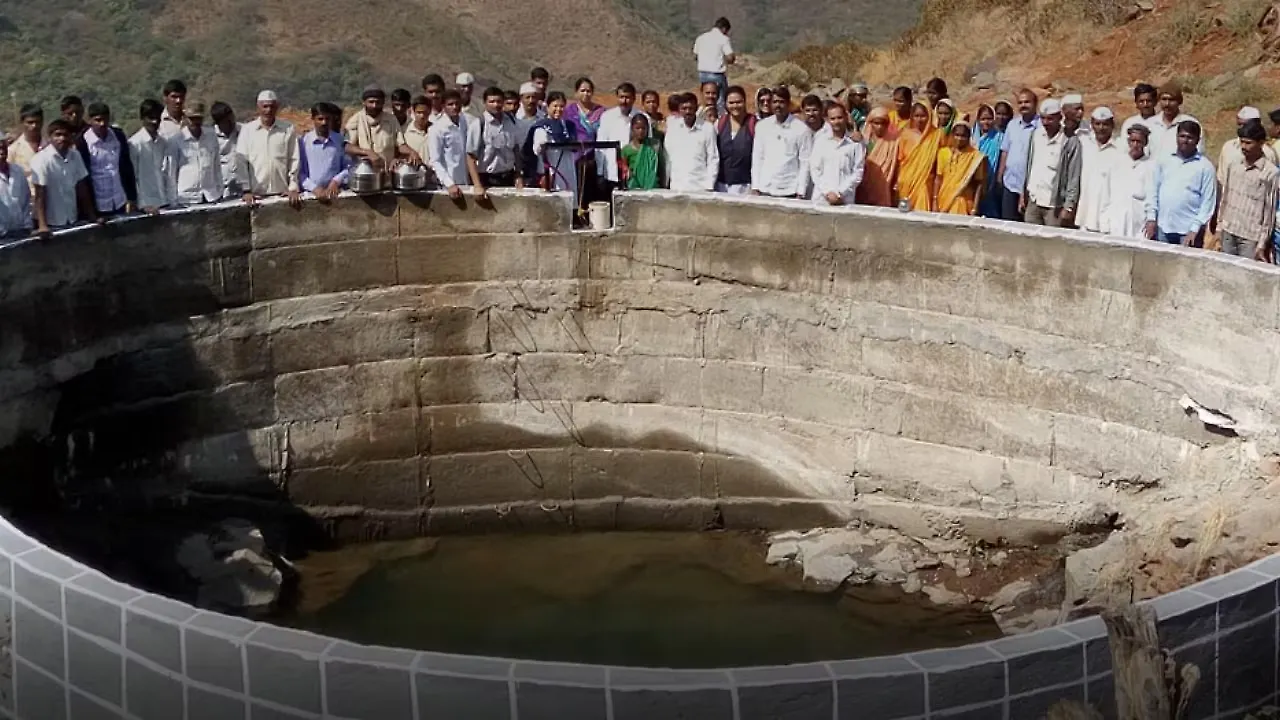
The need for a sustainable future is at its peak currently. Since the 1980s, the word sustainability has found its place in every sector. While recently, the series of fatal events, including the pandemic and the numerous forest fires, have made it more so a need of the hour.
Players across industries are trying to help save the planet from devastation by proving sustainable products or making their production process sustainable.
Corporate Social Responsibility (CSR) activities are another trend that has taken off in the last decade. CSR is the concept that a company should play a positive role in the community and take into account the environmental and social impact of business decisions. It is closely related to sustainability, including creating economic, social, and environmental value and ESG (Environmental, Social, and Governance).
Earlier in June 2021, as a part of its CSR activity, Tata Trusts announced implementing the Tribal Development Fund Wadi Programme in Survani village in Nandurbar, Maharashtra.
The Tribal Development Fund is a programme supported by NABARD for the plantation of fruit orchards (mango with guava) on one acre of land.
The plantation is done on otherwise unused land (due to undulating topography) to help farmers optimise their resources and income, to lift themselves out of poverty. The orchard plantation also helps in protecting natural resources and the environment.
Now the automotive division under the umbrella of Tata Group, Tata Motors, in association with the BAIF Institute for Sustainable Livelihoods and Development (BISLD), has announced that it has piloted the Wadi model in the Jawhar tribal region of Palghar, Maharashtra.
Through this initiative, the company claims to enhance the livelihoods of 2,000 farmers by increasing food security, generating sustainable income, providing healthcare facilities, and sharing technical know-how to improve the quality and the quantity of the farm produced.

Interestingly, since the inception of this programme, these farmers have planted over 2.7 lakh trees and conserved over 1,000 acres (265 hectares) of soil.
Developed through participatory planning with tribal communities in three gram panchayats in Jawhar, the Wadi model has gained success and is now spreading across other neighbouring areas in Palghar.
It must be noted that, as of date, under the model, around 60 fruit trees (mainly mango and cashew) and 250 to 300 forestry trees (combination of timber, fodder and NTFP tree species) have been planted on one acre of underutilised land owned by each participating family. Additionally, the company has also developed six nurseries in Jawhar to provide each family with saplings.
On the other side, the Government supports the farmers under schemes like MGNREGA to assist them in earning wages for tasks such as digging, pitting, and gap filling, among others, while farmers are entrusted with the responsibility of taking care of plants.
Besides enhancing the farmer's livelihood, the model also addresses various environmental needs such as tree plantation, soil conservation, water resource development, moisture conservation, improved nutrition and quality of life.
Additionally, agricultural product aggregation, processing and marketing initiatives introduced into the current model have enhanced the capacity-building amongst farmers.
Benefits of this model are also extended to landless families through small enterprises like sapling and fruit plant nurseries, vermicompost production, petti shops, and more.
To continue efforts under the Wadi model, the company has committed to planting five lakh trees and will be providing opportunities in existing project areas to farmers through BISLD.

Another 2000 farmers have been identified as proposed beneficiaries and will be provided with technical support and nurseries.
Through these efforts, Tata Motors aims to transform 2,000 acres of wasteland into cultivable land and assist each farmer enrolled in the programme in developing a stable means of sustainable livelihood.
SJR Kutty, Chief Sustainability Officer, Tata Motors, said, “Our Wadi model aims to promote sustainable livelihoods while strengthening environmental resilience, and has achieved significant results over the last few years.”
Other Initiatives By The Vehicle Maker
Alongside helping the farmers, the company also puts its foot on helping other sections of society. It's Aarogya health initiative focuses on the overall well-being of both urban and rural communities. Under this, the company aims to address malnutrition in children up to six years of age.
Through various programmes under the initiative, including Project Comal – Combatting Malnutrition through Community based approach, Kitchen Garden – Reviving the practice of kitchen garden in tribal families improved the health status of malnourished children, Leprosy – Cure and Rehabilitation and Malnutrition Treatment Centre, the company claims to have benefitted 3,82,888 people so far.
Further, Vidyadhanam, the education initiative from the company, aims to address the needs in the entire spectrum of education, starting from middle school to higher learning.
Through the initiative, it claims to make an effort to target the middle school level, which has a dearth of resources and a significant representation of SC/ST communities, and a maximum school dropout rate which is close to 50%.

Under this, the vehicle maker has adopted a targeted approach for improving scholastic performance and infusing confidence in children, including instituting need-based rolling scholarships/ financial supports for financially challenged students, organising support classes for difficult subjects for high school students, value-based life skills, sports and other co-curricular activities and plugging gaps in infrastructure at schools.
Through the Kaushalya employability initiative, the company reaches out to the pool of school dropout unemployed youth. In addition, the initiative provides courses for youths from its corporate social responsibility education programmes.
Under its environment-related CSR, the Vasundhara programme, it aims to make efforts to increase the green cover. Through the programme, Tata Motors has planted 110,101 saplings of indigenous varieties across locations and ensured their survival rate is significantly high (85%).
In 2010, the company, through its floated NGO, Sumant Moolgaokar Development Foundation (SMDF), launched ‘Amrutdhara’ – the National Drinking Water Programme. The objective of Amrutdhara is to provide sustainable drinking water solutions to water-stressed parts of the country.
Meanwhile, the Tata Motors Affirmative Action (AA) programme, Aadhaar serves traditionally disadvantaged communities, such as Scheduled Castes (SC) and Scheduled Tribes (ST), with a focus on the 4E’s – Education, Employability, Entrepreneurship and Employment.
Besides, as a part of Seva, the Employee Volunteering Policy enables the employees to invest a minimum of eight hours of company time towards social issues. Furthermore, family members of the employees and superannuated colleagues are also encouraged to voluntarily work for social development.
Interestingly the data suggest that during FY21, nearly 53% or 10,232 employees volunteered and invested over 1.1 lakh volunteering hours under the policy.